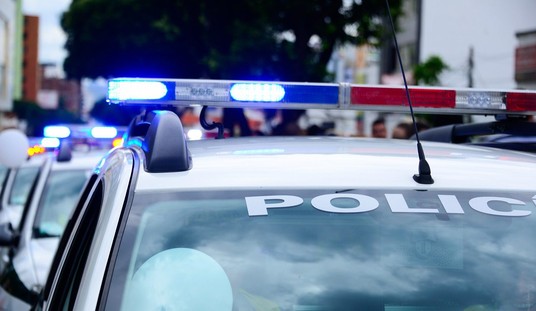Acting U.S. Attorney for Washington, D.C. Michael Sherwin says he’s revamping an initiative that targeted felons in possession of firearms in the city’s most violent neighborhoods after complaints that the program wasn’t being enforced equitably across the entire District.
The Washingon Post first reported on the changes to the program and the criticism that the policy “disproportionately subjected African American defendants to lengthier prison terms.”
The purpose of the initiative was simple; referring local felon-in-possession cases to the federal U.S. attorney’s office, where the offender would be far more likely to face serious prison time than they would in the District’s local courts. Critics of the program, on the other hand, say the effort has exacerbated the problem of overpolicing in the city’s black-majority neighborhoods.
The initiative “exclusively and — now we know, by design — targets District residents of color via specific police districts,” Council member Charles Allen (D-Ward 6), who chairs the council’s judiciary committee and has opposed the program said in a statement. “It is one more policy defaulting to harsh penalties on Black residents whose neighborhoods have historically been underinvested in and overpoliced. We must end this policy. It is taking us in the wrong direction.”
D.C. Attorney General Karl A. Racine (D) also condemned what he called the “discriminatory application” against defendants of federal charges, which carry harsher penalties compared to similar convictions in local court.
The office of the mayor — who championed the program with D.C. police when it first rolled out as the city was facing a 40 percent jump in homicides — did not respond to requests for comment this week about when or if Bowser knew of the targeting and whether she supported it.
According to the John Crabb, the criminal division chief of the U.S. attorneys office, the initiative as designed was going to be applied across the District, but due to funding concerns the office decided instead to focus on the police districts in the city with the highest homicide violent crime, and firearm recovery rates. The 5th, 6th, and 7th districts are home to 80% of Washington, D.C.’s homicides, so it makes sense to focus your efforts where the crime is actually taking place, right?
Apparently not. In D.C., the initiative has been panned by city council members from the get-go.
At the time the program was announced, 10 of 13 council members — including Mendelson and Gray but not McDuffie and White — signed a censure resolution opposing the initiative. The resolution called the program speculative, harsh and inconsistent with local lawmakers’ own efforts to modify local sentencing and reentry policies, especially for offenders younger than 25.
Opposing legislators said the measure would be unlikely to succeed and undemocratic. They were joined by groups such as the Urban Institute and American Civl Liberties Union, the latter of which called the measure a “slap in the face to D.C. residents.”
Racine announced in April that his office will oppose the policy of prosecuting local gun crimes in federal court.
I find it exceedingly odd that D.C.’s top cop Karl Racine, who has called for more federal gun control laws, doesn’t believe that federal prosecutors should ever handle a case involving a felon in possession of a firearm in Washington, D.C. Then again, maybe it’s just more evidence that the gun control movement is the bastard stepchild of the Left, because every new gun control law creates a new gun crime out of thin air, and one that must be enforced by the police. Democrats like Racine embrace the idea of less policing, but still can’t quite bring themselves to acknowledge that means less enforcement of gun control laws as well.
This program targeting felons illegally possessing firearms isn’t going away completely, by the way. The U.S. attorney says the initiative is being revamped to focus, not on geographical boundaries, but on the criminal histories of those arrested and the danger they may pose to the community. That makes sense, but I’m not sure it’s actually going to change much, given the fact that the most violent offenders are also likely to live in the city’s most violent neighborhoods.









